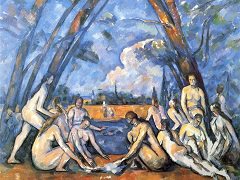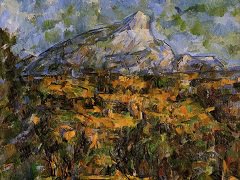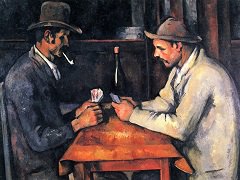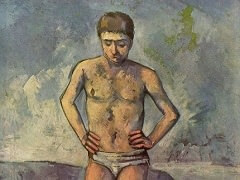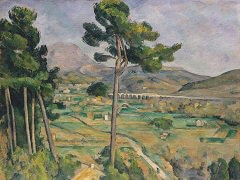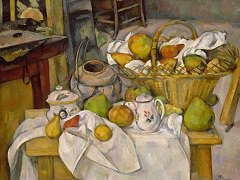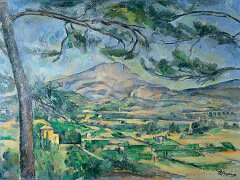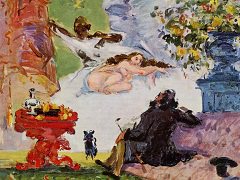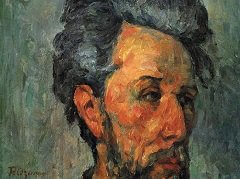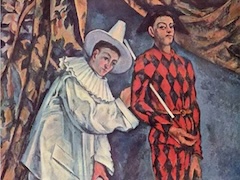The Temptation of St. Anthony, 1887 - by Paul Cezanne
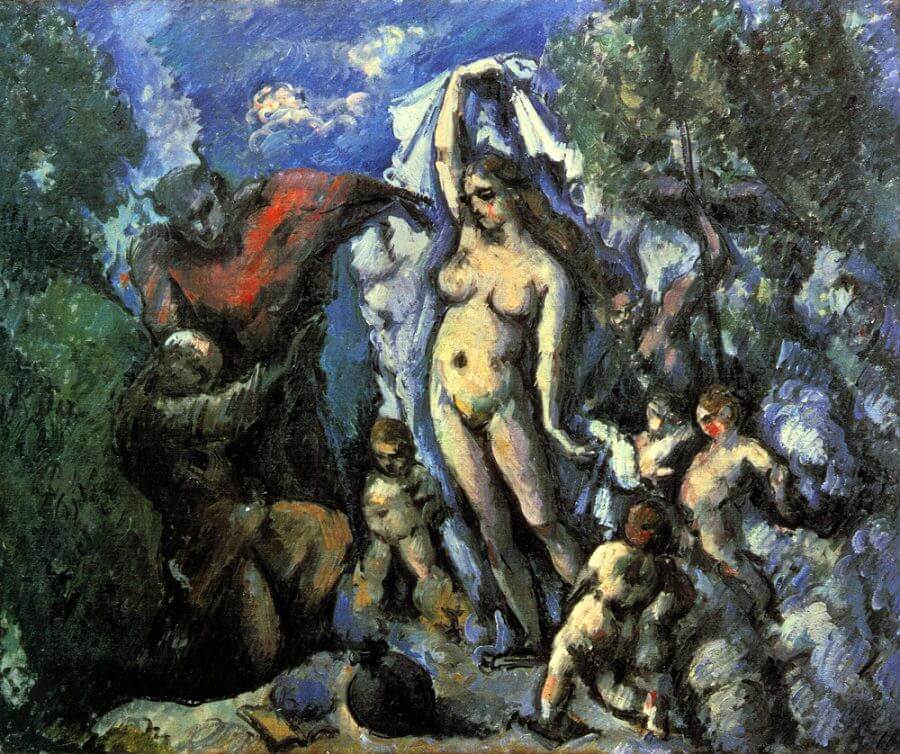
The Temptation of St. Anthony has always been a popular theme for many artists. Michelangelo, Hieronymous Bosch, Salvador Dali, and Max Ernst all created their own painting for this subject. Cezanne completed three paintings on the same theme. This version is Cezanne's last known working of a subject that had often been represented since the time of Hieronymous Bosch and also described by many nineteenth-century writers. During a period when most of Cezanne's works dealt with erotic subjects and murders, this conventional scene appears to be a representation of the mastering of the sexual conflicts that beset the painter at this time. The temptress, who is placed in the centre of the picture, unveils herself with a triumphant gesture, but she is standing some distance from the hermit unlike another version of the scene, in which she assails him relentlessly. The devil, who appears on the left, seems to be playing a dual role: he is inciting the temptress as well as, paradoxically appearing to be the protector to whom the saint clings. A circle of cherubs gives the work the lightness of spirit of an eighteenth-century scene galante.
In this painting, the woman, an object of both adoration and fear, does not seem to be the absolute corrupter of the earlier versions. She is something of a classical goddess about her as well as prefiguring a bather.

